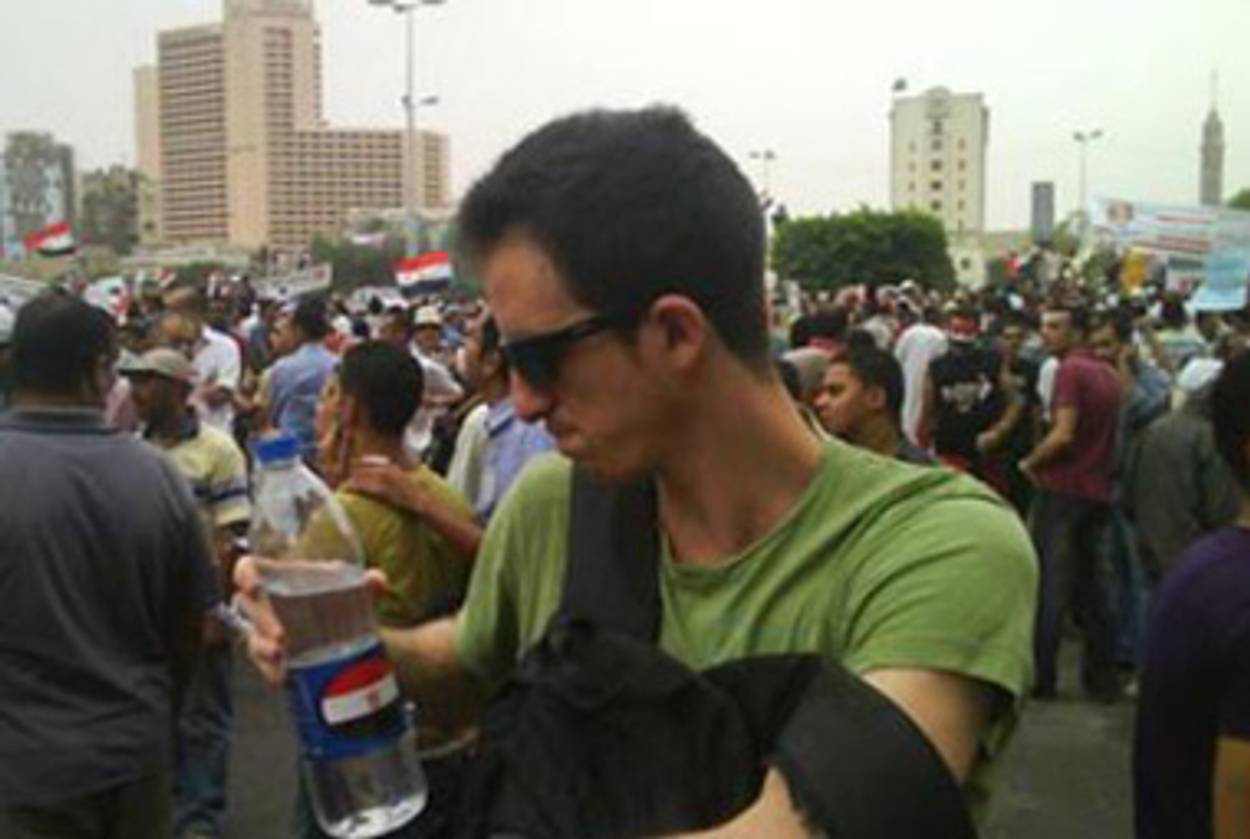The Other Israeli Prison Swap
Bruce Riedel on the Grapel deal and whether the U.S. citizen is an Israeli spy




Gilad Shalit is the most famous Israeli prisoner ever, but he likely won’t even be the only one freed this week. Far less discussed is the case of Ilan Grapel, 27, a dual American-Israeli citizen who served in the IDF and now studies law at Emory. He was detained by Egyptian authorities in June, first under charges of spying for Israel and then under ones of incitement; as yet, no indictment has been served. Then, last week, there was much action concerning him, suggesting that his situation might be tethered to Shalit’s. Over the weekend, there emerged reports that Grapel, too, is likely to be freed—following the exchange of more than 80 Egyptian nationals currently in Israeli prisons, most for illegal immigration-type offenses.
… Huh? The general assumption was that Grapel was not a spy, but rather some idealistic American kid who decided to visit Tahrir Square, foolishly lied about being a journalist, and unluckily ended up in Egyptian custody. But Israel’s willingness to trade prisoners for him—especially given that he is the United States’ responsibility, having entered Egypt with his American passport—maybe suggests otherwise? I talked to Bruce Riedel, a former intelligence hand and now senior fellow at the Brookings Institution, to get a handle on what’s going on with what is, after all, an American citizen one year older than myself.
It seems likely either that the exchange for Grapel is part of the Shalit deal, or that it is less closely linked: that the Shalit deal created a climate in which the Grapel deal could happen and also that Shalit could distract people from it—the Egyptian government is worried that its people will be angry about letting Grapel go. Which do you think it is?
I think it’s the latter. It’s an opportune moment to clean out the file system. And particularly the Egyptians want to do it because they want to continue to earn good favor with the United States and try to re-establish strong intelligence links. Our intelligence relationship was built around Omar Suleiman [former President Mubarak’s number two, now deposed]—it was very much a one-man show. This is a way they can do it and get a bunch of Egyptians free at the same time. They kind of hide it under the larger Hamas deal.
What makes now an “opportune moment” for such a deal?
Everyone wonders whether the Hamas deal—it may be dependent upon developments in Syria, and the future of Hamas’ headquarters there. The Egyptians want something if they’re going to allow Hamas’ political leadership to move there, which has costs with their relationship with the United States. It’s their way of saying that if the Hamas leadership is in Cairo, you know, ‘We can exert a moderating influence on them—look, we were able to get the deal done!’
I think it’s the general sense that the Arab world is in turmoil. Strike now when bird is in hand. Six months from now, who knows who’s going to be running what, and it may not be possible.
The other theory making the rounds—and it’s not really backed up by much, but still—is that Israel and the U.S. are striking these deals to put themselves in a favorable P.R. position so that they can then do something unpopular … like take military action against Iran.
There’s certainly a lot of suspicious and fishy things happening in the Iran arena, but I don’t think the Obama administration is interested in another war in the Middle East. I can’t see this president seeking another war when he’s spent much of the past two-and-a-half years to close down the two wars he inherited.
What is the significance of the fact that Secretary of Defense Leon Panetta, previously head of the CIA, was in Cairo two weeks ago, and ostensibly failed (but probably did more than merely fail) to get Grapel freed?
Our blessing is useful for both sides, but especially the Egyptians, because the military wants to maintain the close relationship and would like us to avert our eyes when the Egyptian military has its occasional excess, like with the Copts. And this is money in the bank.
Finally, how do we square, on the one hand, the insistence that Grapel is not a spy with, on the other hand, Israel’s willingness to trade prisoners for him, especially given that he should be the Americans’ problem?
The simplest solution—not necessarily the right one—is he is some kind of Israeli agent, and they felt he would be much less likely to be arrested with a U.S. passport, and that assumption proved to be erroneous. I haven’t got a clue. But the simple answer would be: he was on some kind of mission, and therefore the government of Israel feels responsible to bring him home and would be willing to trade prisoners for him. It certainly will reinforce Egypt’s argument that he was an intelligence operative of the Israelis if he’s traded for 80 or so Egyptians.
Report: Israel, Egypt Close to Sealing Deal to Free Suspected Israeli Spy [Haaretz]
Earlier: U.S. Prisoner Unsung Player in Shalit Affair
Israeli-U.S. Law Student Detained in Egypt
Marc Tracy is a staff writer at The New Republic, and was previously a staff writer at Tablet. He tweets @marcatracy.